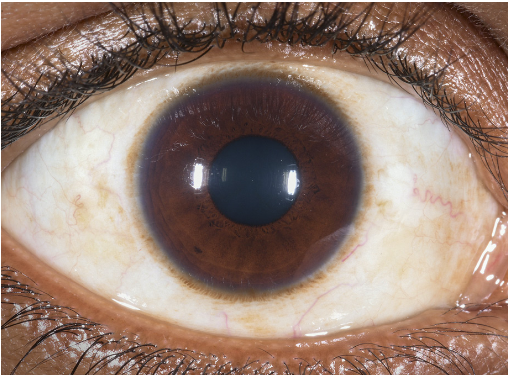POSTER | Corneal infection: Act fast to prevent blindness!

Related content
Patients with painful red eyes often present to pharmacy staff and community health workers. If there is also a white spot on their cornea, they may have a corneal infection. If you act fast, you can prevent blindness and loss of the eye.
How to examine the eye
Look at the eye up close with a bright light and magnification (for example, a phone camera). Ask the patient to look up and down, and right and left.
If the eye is so painful that the patient cannot open their eye to be examined, refer them to an eye clinic or eye specialist immediately.
What is the cornea?
In a healthy eye, the cornea is the clear/see-through area in front of the pupil (black) and iris (brown).
How to recognise a corneal infection
Any white patch on the cornea, with redness and pain, suggests an infection.
Early-stage infection. Note the white patch on the cornea and the redness elsewhere.

Late-stage infection, with a larger white patch and a collection of pus at the base of the cornea.

What to do
If the patient has a white patch, redness, and pain:
✔️ Urgently refer the patient to an eye specialist. They must be seen within 24 hours. Give them the address and directions to get there.
✔️ Start the patient on broad-spectrum antibiotic eye drops, which they must apply every 1 or 2 hours until they see the eye specialist.
✔️ Explain to the patient how to instil the eye drops, without touching the eye.

What to avoid
If the patient has a white patch, redness, and pain they must not use:
X Steroid eye drops, such as prednisolone or dexamethasone
X Non-sterile preparations
These will make the infection worse.
If you can see a white area but there is no redness or pain, this is probably not an infection. The patient may have cataract (left) or a corneal scar (right). Refer them to an eye specialist for advice.

